How cannabis is changing the California desert
DESERT HOT SPRINGS, Calif. — Along a hot, dusty stretch of freeway in California's Coachella Valley, a green rush is booming that not even the coronavirus pandemic can slow.
Desert Hot Springs, once a sleepy retirement community overshadowed by its more glamorous neighbor, Palm Springs, to the south, is transforming into a cannabis-growing capital as businesses lured by tax incentives and a 420-friendly local government pour into the small city.
"It's fun times right now to be the mayor," said Mayor Scott Matas, who has been in city government since 2007 and once voted to implement a moratorium on cannabis businesses.
Last year the industry contributed more than $4 million to city revenue, overtaking real estate as the biggest generator of tax profit, Matas said. City officials anticipate an even higher revenue stream from cannabis businesses this year.
Deputy City Manager Doria Wilms said: "It's been incredible to see the transformation. We don't see it slowing down."
A new industry blossoms
It took Gold Flora CEO Laurie Holcomb only 48 hours to decide to open a cultivation business in Desert Hot Springs after it began to allow large-scale operations. She already owned a real estate development company and saw an opportunity to expand into the growing industry.
In eight growing rooms inside Gold Flora's cultivation facility, insulated metal panels similar to those in walk-in coolers shield more than 9,000 cannabis plants from the unrelenting sun. Even without air conditioning, the building will never heat up beyond 80 degrees inside despite triple-digit temperatures outside, facilities manager Adam Yudka said. Plants are stored atop rolling benches that use an internal irrigation system to water crops individually.


Gold Flora owns and operates five warehouse-size buildings, some of which are rented to other cannabis businesses. The sprawling campus, covering about 23 city blocks, was built from the ground up.
"Most people, when they think about the desert, they think they're going out in the middle of nowhere," Holcomb said. "It made sense that if you build it, they will come."
A city brought back from the brink
Gold Flora and other companies like it represent a major shift for the desert economy. Matas, who was re-elected to a third term in November, remembers a time around 2011 when the city had just "$400 in the bank." City officials froze salaries, cut programs and considered filing for bankruptcy protection, Reuters reported. The city had previously filed for bankruptcy in 2001.
The tax revenue has already helped to pay for a new City Hall, a library and roads, as well as more police officers. Housing developers eye the area as jobs attract more people to the desert. Residents also benefit from the boom — of about 29,000 residents, at least 2,300 work in the cannabis industry, Wilms said.
Desert Hot Springs, about two hours east of Los Angeles near Joshua Tree National Park, boasted more than 200 spas throughout the 1940s and the 1950s that were fed by a natural underground aquifer, which still provides water for much of the Coachella Valley. But the city had fallen on hard times financially in the last 20 years.
In 2013, the city declared a fiscal emergency to avoid filing for Chapter 9 for a second time, the Los Angeles Times reported. The city had emerged from its first bankruptcy filing in 2004, but less than 10 years later its reserves were dwindling again after an economic downturn and decreased development.
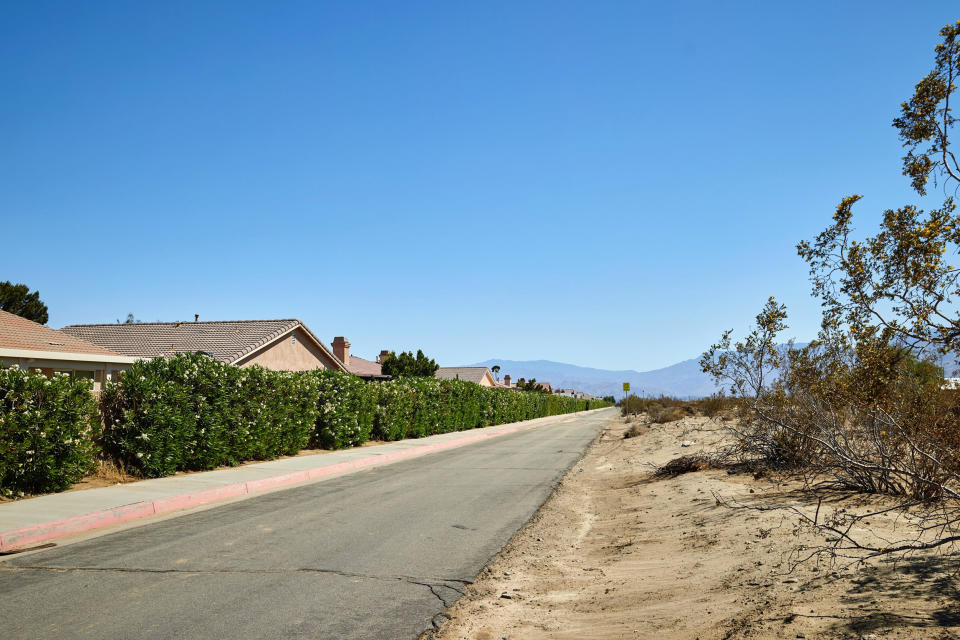
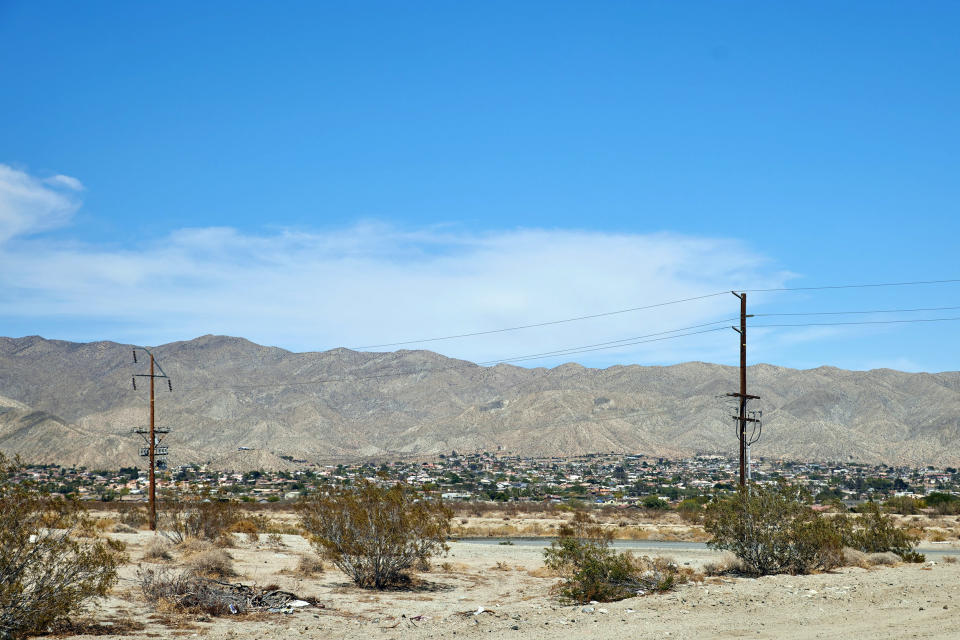

Only medical marijuana was legal in California at the time, but city officials decided to take a risk on what appeared to be a growing industry as states like Washington and Colorado legalized recreational cannabis. Adult-use recreational marijuana became legal in 2016.
In 2014, Desert Hot Springs became the first city in Southern California to legalize large-scale medical cannabis cultivation. Palm Springs followed, as did other desert cities in the Coachella Valley. Marijuana growers and real estate developers rushed to buy dusty plots of land even when the parcels came without infrastructure, including roads and utilities, hoping to cash in on the state's promise of becoming the biggest cannabis producer in the country.
Business zones were established to quarantine large operations in an industrial section away from residents. Much of the land remained barren and untouched until companies with a little sense of adventure decided to break ground.
"There was really no reason to cross the [Interstate] 10," Matas said. "People ignored the north side of the freeway for so long."
'Cannatourism' could be the future
Fast-forward to 2021 and that side of the freeway, which connects Southern California to the rest of the country, is dotted with hundreds of thousands of square feet of warehouses. There is no cannabis smell and there are no retail shops in the industrial zone. Instead, warehouses remain inconspicuous except for flashy cars and security guards outside the buildings.
In December, the City Council unanimously approved two measures to grow "cannatourism" in the region. One allows for the creation of cannabis "entertainment facilities," and the other gives hotels the green light to sell cannabis inside their properties. A House of Blues-style concert venue is already in the works, although under state law businesses cannot sell both cannabis and alcohol at the same time.
"The city has been awesome to work with," said Holcomb of Gold Flora. "You have to remember that four to five years ago, people didn't want to touch [cannabis], but Desert Hot Springs had the foresight to enter the industry early on."
Neighboring Palm Springs, with its rows of midcentury modern homes and golf courses, has already capitalized on the tourism side of cannabis. Retail stores and consumption sites are sprinkled among clothing stores and spas. Last month, the latest cannabis dispensary and lounge opened in an old bank building following $1 million of renovations. On Mother's Day, the Four Twenty Bank — a dispensary lounge, not a bank — offered all moms who visited free flowers, according to its website.
The idea behind cashing in on cannatourism comes from "treating cannabis like anything else," said Jocelyn Kane, vice president of the Coachella Valley Cannabis Alliance Network, which advocates for cannabis businesses in the desert.
"These spaces aren't just a place to light up," she said. "It's a place to have a night out."
Going green in the desert
Desert Hot Springs and Palm Springs are in a kind of cannabis tax war as they now compete for new business. In February, Desert Hot Springs lowered its cultivation tax — $25.50 per square foot for the first 3,000 square feet and $10.20 per square foot for each square foot over 3,000 square feet — to a flat rate of $10 per square foot. Palm Springs already charges $10 per square foot, and it offers a $5-per-square-foot rate in its "Cannabis Overlay Zone" north of the I-10 corridor.
Kings Garden, one of the first companies to break ground in the otherwise unforgiving landscape, operates 300,000 square feet of warehouse space near the overlay zone between Palm Springs and Desert Hot Springs.
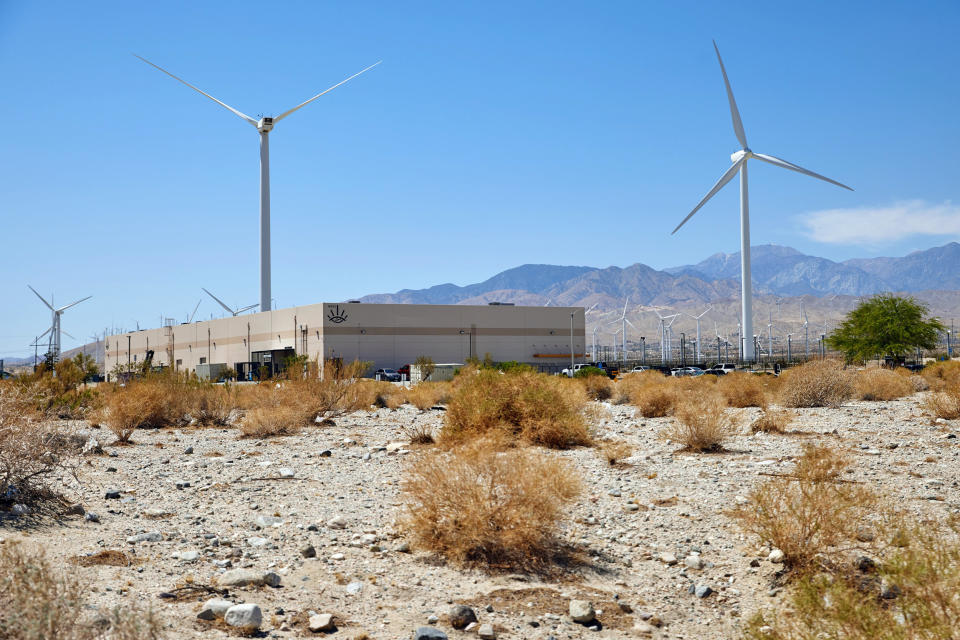
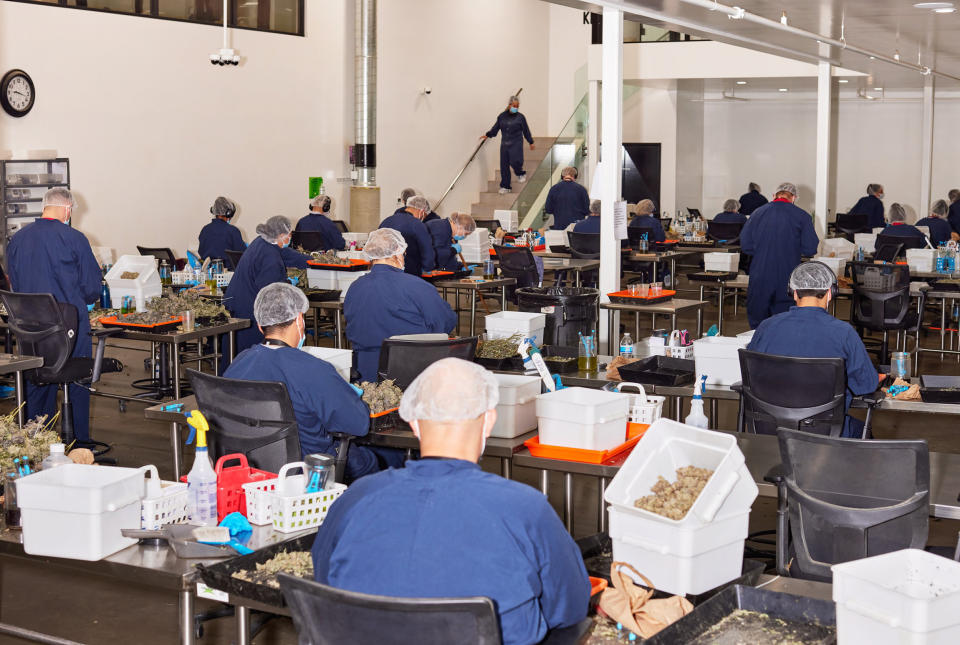
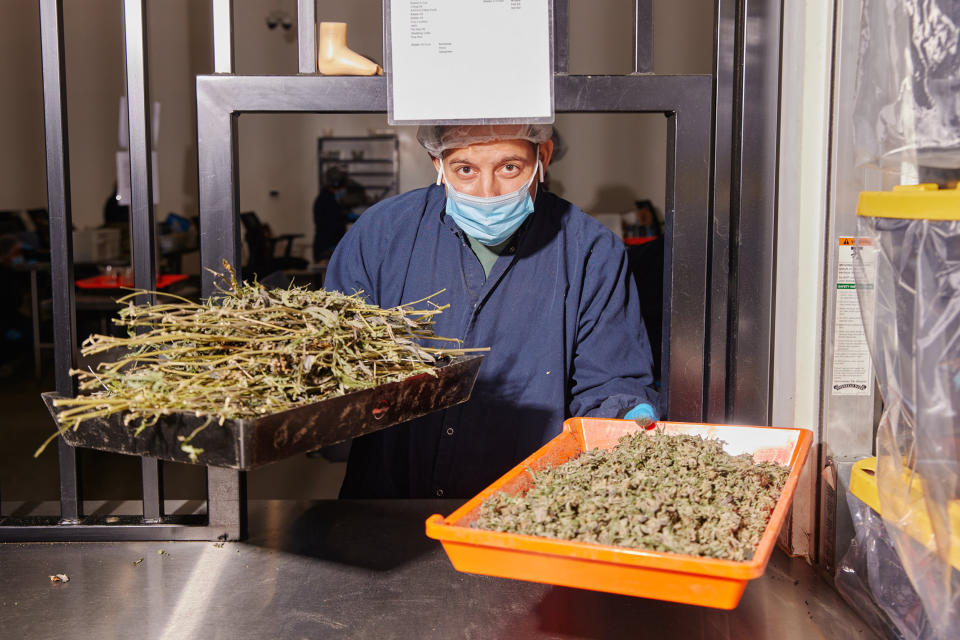

Chief Operating Officer Charlie Kieley, a Palm Springs native, spent 15 years working in Northern California's cannabis industry before he returned to the Coachella Valley. Up north, cultivators favor outdoor grow operations, but that was not an option in the dry, hot desert, he said. With constant sun and almost no rain, growing cannabis in the desert requires a mammoth water and power supply to keep indoor operations going when outside temperatures soar.

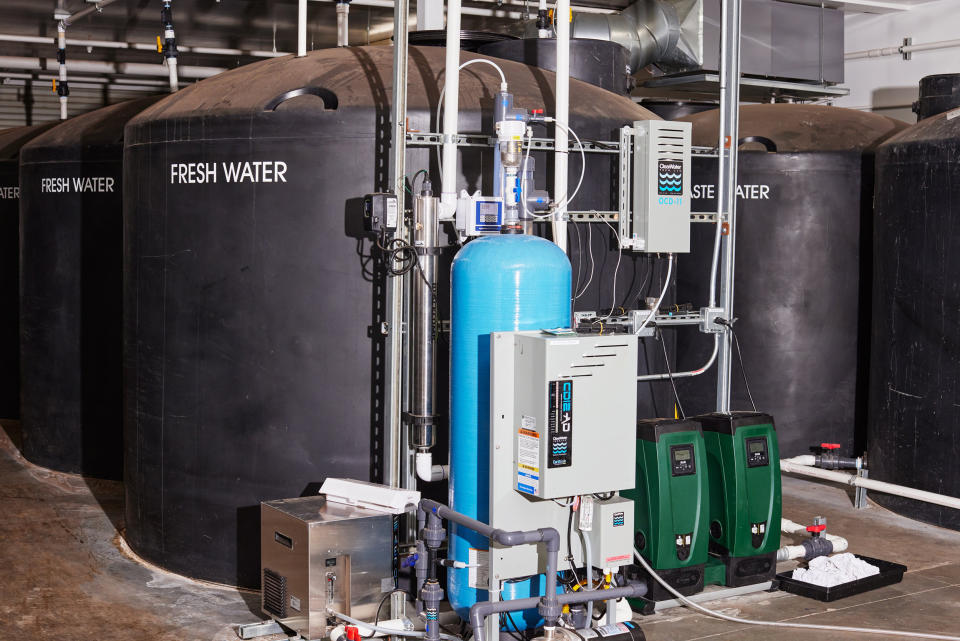
Kings Garden, which produces about 40,000 pounds of cannabis flower annually, uses a water filtration technology similar to what municipal systems use. Rather than let condensation and runoff water go to waste, Kings Garden recycles and reclaims its water supply, getting about 70 percent of what it needs internally. The remaining 30 percent comes from the municipal water district, Kieley said. Water that cannot be repurposed for cannabis cultivation is donated to a local farmer for use on seasonal crops.
The desert has offered companies something other areas can't, the freedom and space to grow.
"We're working with municipalities who are very forward-thinking," he said. "The desert is not as crowded, like San Bernardino or L.A. It's a great place to do business."

